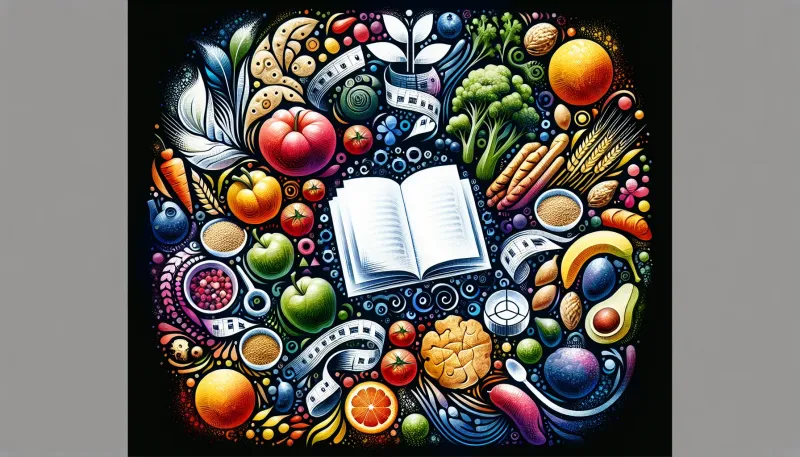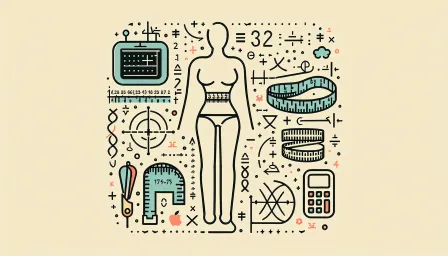Maximize Your Health: How Food Journaling for Accountability Transforms Your Diet

Learn how food journaling for accountability can transform your diet and improve your health. Discover tips, strategies, and benefits of keeping a food journal.
Keeping track of what you eat can seem like a daunting task, but food journaling for accountability can be a game-changer in your quest for a healthier diet. Whether you're aiming to lose weight, address specific health concerns, or simply make more mindful food choices, a food journal can provide the insights and accountability you need to succeed.
What is Food Journaling?
Food journaling involves recording everything you eat and drink throughout the day. This can be done in a notebook, a digital app, or any other medium that suits your style. The key is consistent and accurate logging, which allows you to reflect on your dietary habits.
The Benefits of Food Journaling for Accountability
Increased Awareness
By documenting your daily intake, you become more aware of what you're consuming. This awareness can help you identify unhealthy patterns, such as snacking mindlessly or consuming excessive sugars and fats.
Better Nutritional Balance
A detailed food journal can highlight any deficiencies or imbalances in your diet. You can see if you're getting enough fruits, vegetables, proteins, and other essential nutrients. This information is vital for making healthier choices.
Supports Weight Loss Goals
Numerous studies have shown that people who keep food journals are more successful in losing weight and maintaining their weight loss. The act of recording what you eat can discourage overeating or indulging in unhealthy snacks.
Helps Manage Health Conditions
For those with health conditions like diabetes, hypertension, or allergies, a food journal can be a powerful tool. Recording your meals helps you track how your diet affects your condition and enables better management through dietary adjustments.
How to Start Food Journaling for Accountability
Choose Your Medium
Decide whether you prefer a traditional pen-and-paper journal, a mobile app, or a digital document. There are numerous apps designed specifically for food journaling, offering features like barcode scanning and nutritional information databases.
Be Honest and Detailed
Honesty is crucial for an accurate food journal. Record everything, including small snacks, drinks, and condiments. The more detailed your entries, the more useful your journal will be in revealing patterns and areas for improvement.
Include Portion Sizes
Always note the portion sizes of your meals and snacks. This helps in understanding your calorie intake and can uncover if you're eating portions that are larger than recommended.
Track Your Emotions and Physical Activity
Sometimes our eating habits are closely tied to our emotions or levels of physical activity. By noting how you feel when you eat or how much exercise you've done, you can identify emotional eating triggers or understand how exercise impacts your hunger levels.
Tips for Staying Consistent
Set Reminders
Use alarms or app notifications to remind you to log your meals. Consistency is key for accurate tracking and effective results.
Reflect Regularly
Take time to review your journal entries at the end of each week. Reflecting on your choices can help you plan better and make more informed decisions moving forward.
Share with a Coach or Friend
If you struggle to stay accountable on your own, consider sharing your food journal with a health coach or a supportive friend. This external accountability can enhance your commitment to your dietary goals.
Common Challenges and Solutions
Time Constraints
Many people find it challenging to keep up with food journaling due to busy schedules. One solution is to set aside specific times in your day, such as after meals, to update your journal. This can make the task more manageable.
Forgetting to Log
If you often forget to log your meals, carrying a small notebook or using an app that is easily accessible can help. Some apps also allow for voice entries, making it quicker to update your journal on-the-go.
Feeling Judged
Writing down everything you eat can sometimes make you feel judged or guilty about your choices. It's important to remember that the goal of a food journal is to help you understand your habits and improve—not to shame you. Be compassionate with yourself during the process.
Conclusion
Food journaling for accountability is a powerful method to transform your diet and achieve your health goals. By increasing awareness, supporting nutritional balance, aiding in weight loss, and managing health conditions, food journaling provides numerous benefits. Start today by choosing a method that suits you, logging honestly and consistently, and reflecting on your progress regularly. With time and practice, food journaling can become an invaluable tool in your journey to better health.



























